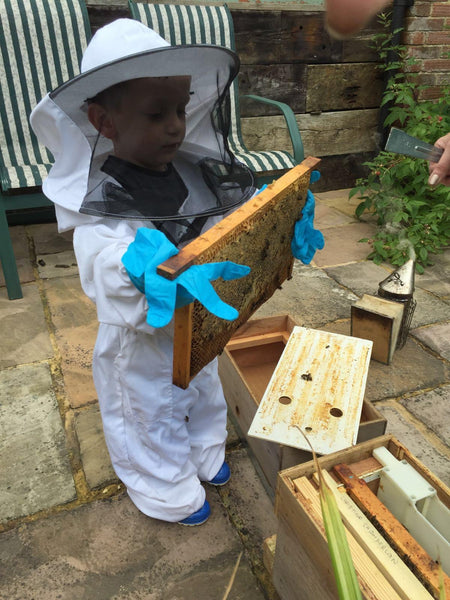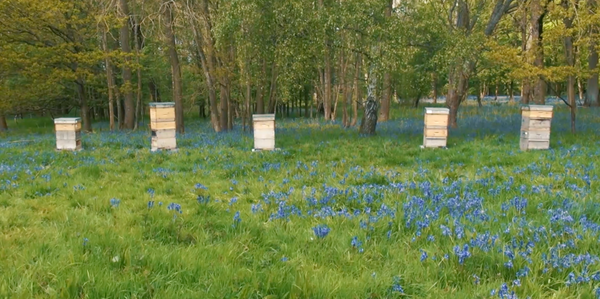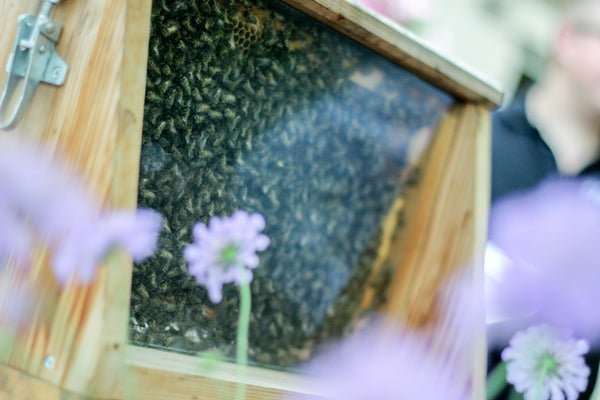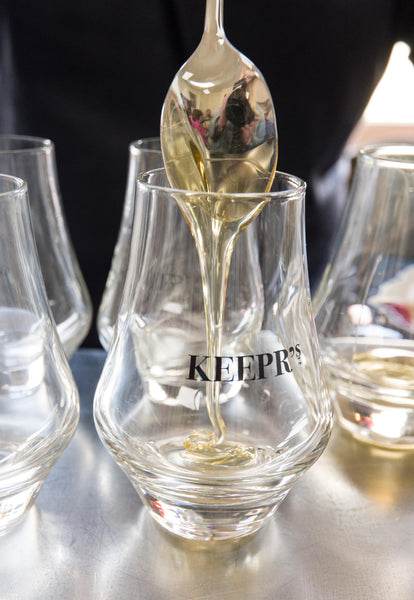You have no items in your shopping cart.
Five-year-old Archie Cridland achieved his British Beekeeper's Association certificate in May this year – gaining himself the title of the UK’s youngest qualified beekeeper.
He had his first look at bees at the age of two (as pictured here) and now has a colony of 60,000 bees making around 60 years of honey a year.

But what does it take to become a beekeeper and what is it like? Here’s some insider knowledge from the Keepr’s beekeeper.
What does a beekeeper do?
Beekeepers manage colonies of honey bees in hives or apiaries, harvesting honey, beeswax and royal jelly.

How do you become a beekeeper?
You don’t need specific qualifications to become a beekeeper but The British Beekeeper's Association has branches throughout the UK where you can see if this hobby or profession is for you via an introductory course. It also runs courses and exams covering basic skills and knowledge of the craft all the way to becoming a Master Beekeeper.
Where do I get the bees?
Try your local beekeeper’s association or an online company such as National Bee Supplies where you can also purchase a hive, clothing and tools.

When does the beekeeping season start?
It all depends on the weather. The earliest I have started is the beginning of March and the latest is mid May. The temperature needs to be over 15°c in the daytime otherwise you will damage the brood. The season comes to an end mid to late August.
Once we get into September the summer honey flow is harvested and extracted. After this everything needs to be checked to ensure the bees have enough food for the winter. The stronger colonies will get enough winter food from the ivy and heather, the weaker ones need to be fed with sugar syrup. Once the honey has been removed you also need to treat against veroa. Normally, everything’s wrapped up by the beginning of October. From December onwards, I do a monthly check by lifting to make sure they have enough food, this can be supplemented with fondant.
What does an average day look like?
This all depends on the time of year. During the winter months my time is spent preparing equipment for the coming season, cleaning empty frames and making and fitting new foundation.
During the beekeeping season I aim to inspect 50 colonies per day, which takes me five to six days to see all my bees. I aim to inspect each colony every seven days. The seventh day of the week is spent queen rearing. The honey that is harvested I extract in the evenings.

What is the best thing about being a beekeeper?
Harvesting the heather honey. You drive down the motorway with both windows down and all you can sense is the overpowering smell of heather honey.
Any advice for those looking to start their journey into beekeeping?
- Try before you buy. Go on a beginner's course with a beekeeping association or go out beekeeping with a friend before you buy your equipment and bees. A lot of people start beekeeping then realise it's not for them. The bees are then neglected.
- Make sure you have a good teacher. If you know an experienced beekeeper, they will be a wealth of knowledge and help keep you on track. When you are buying books try and pick an author who has made a living from beekeeping, there is a lot of misleading information out there. Be wary of things you read and see on YouTube.
- Learn from your mistakes. If something goes wrong which it always does with livestock, try and understand why it happened and more importantly make sure you don't make the same mistake again.







